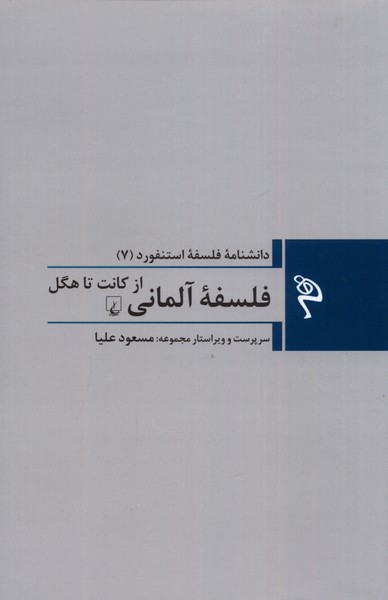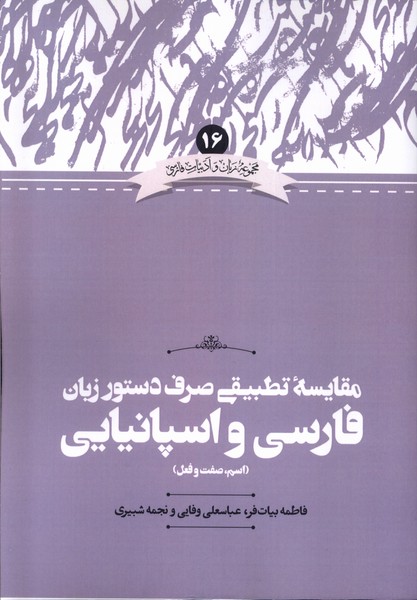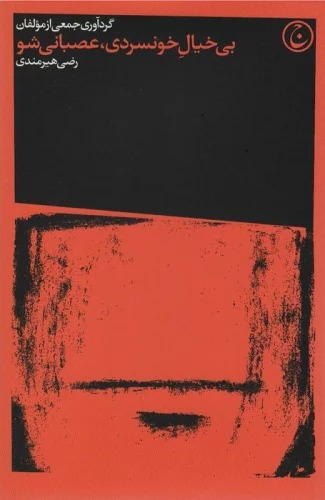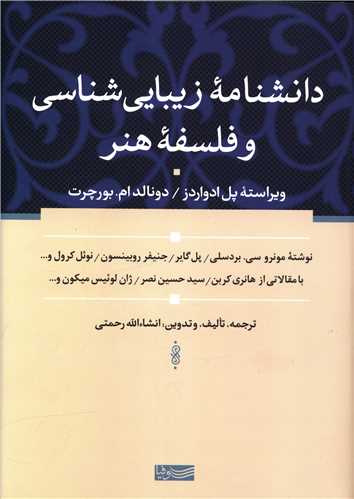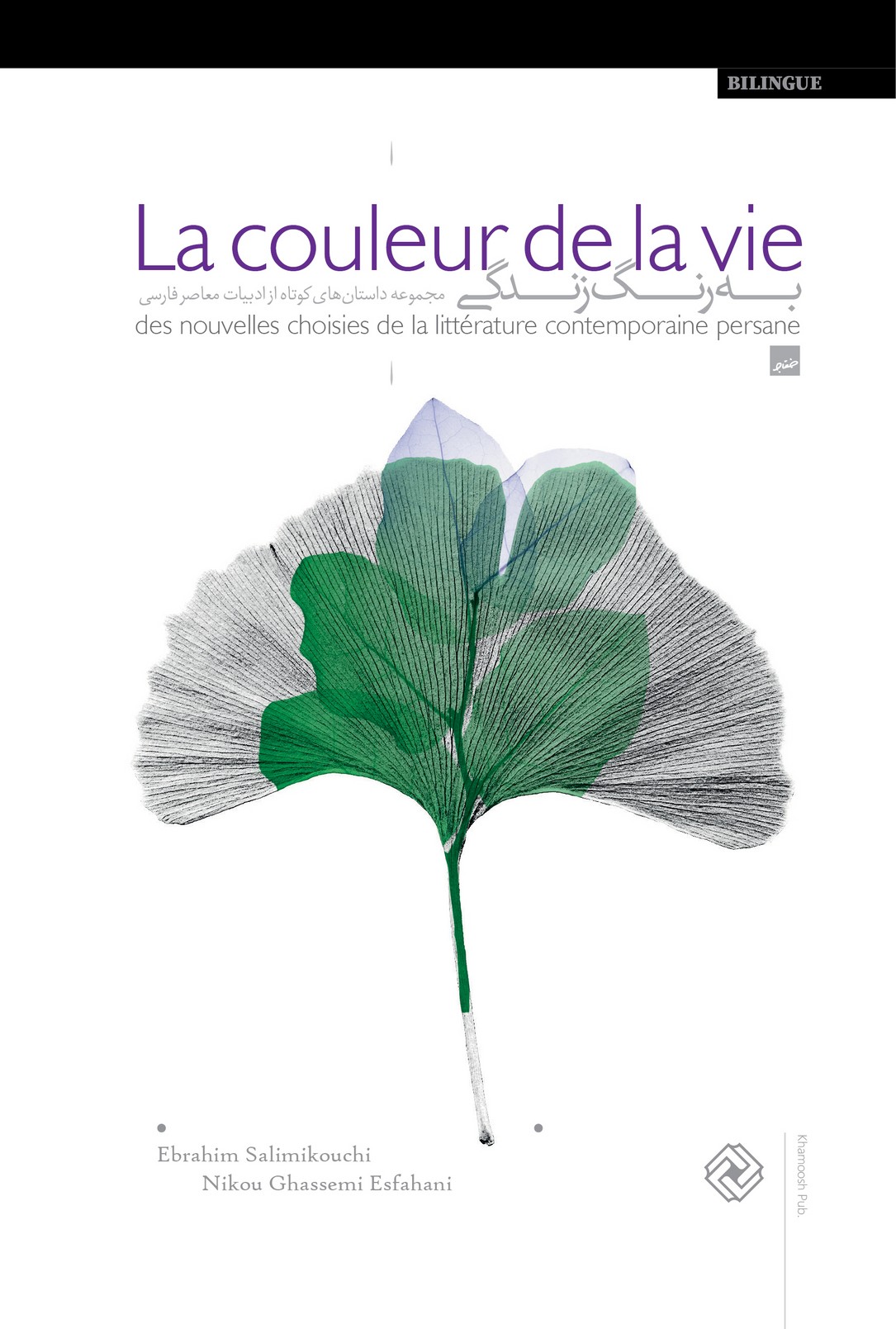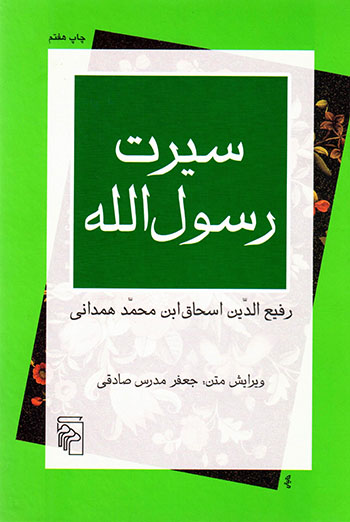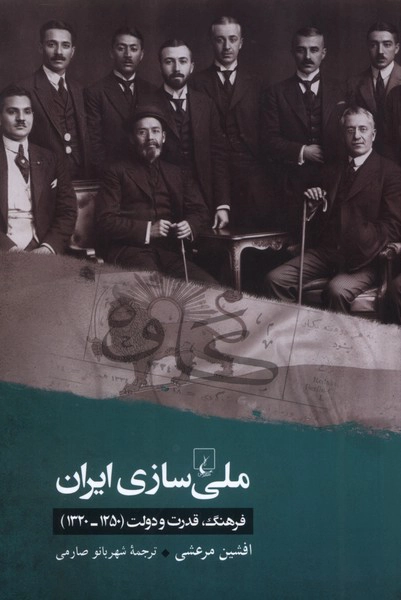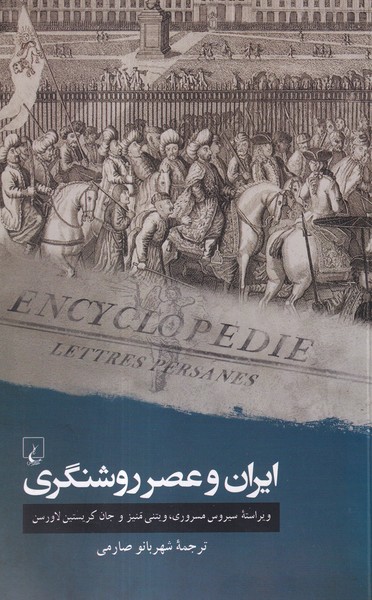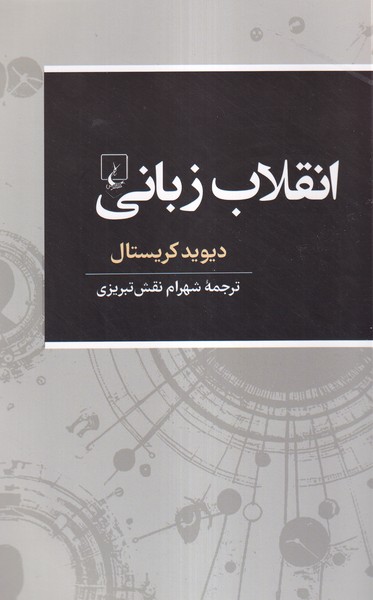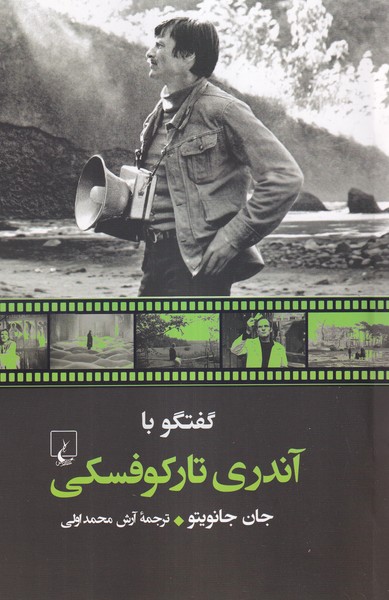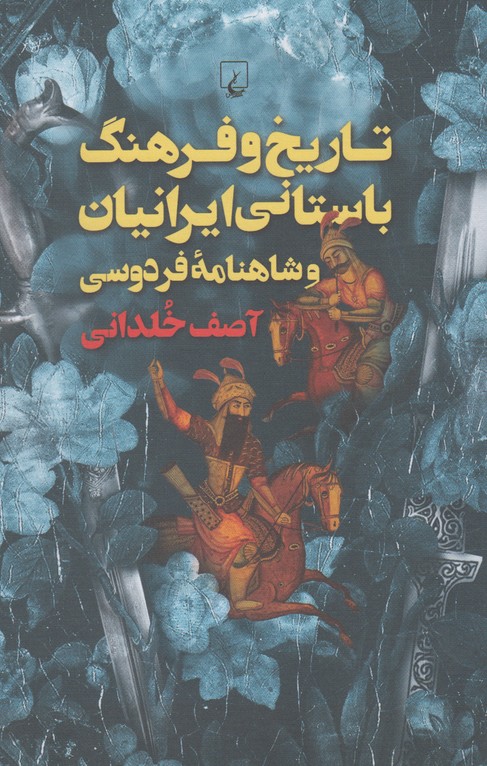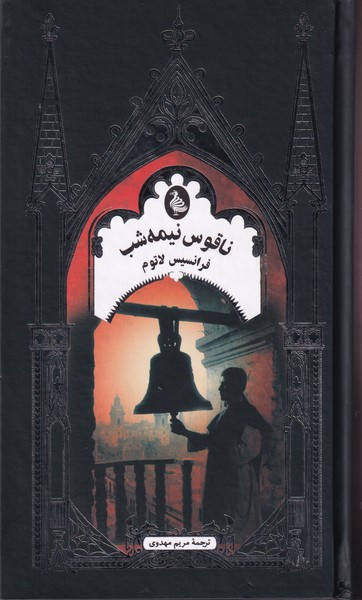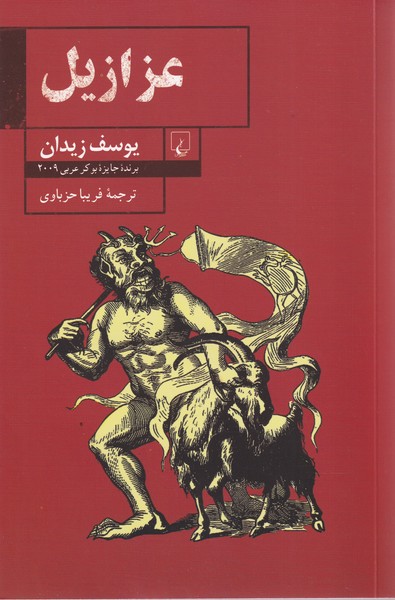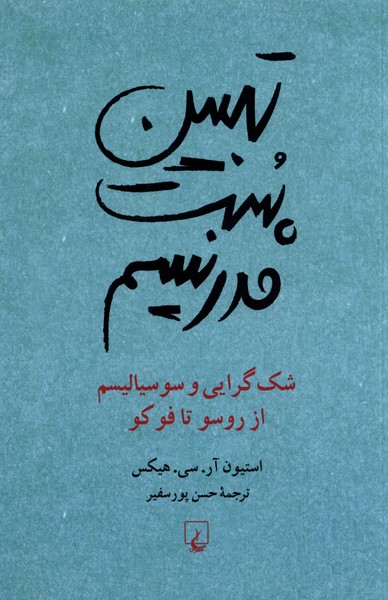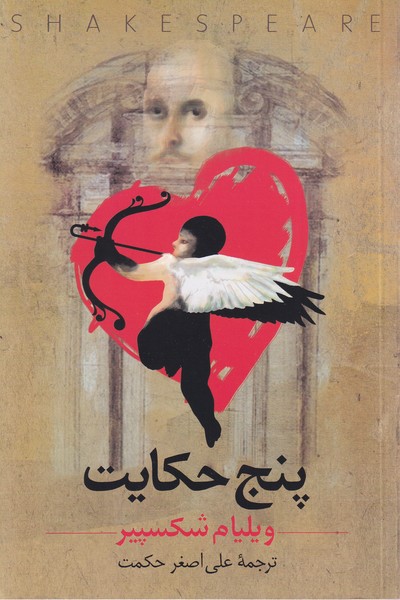Majmūah-yi falsafah-yi Istanfurd (7) falsafah-yi Ālmānī az Kānt tā Higil: Persian 2023
مجموعه فلسفه استنفورد(7) فلسفه ی آلمانی از کانت تا هگل
28.48 $
Share
Wishlist
Original Title:
مجموعه فلسفه استنفورد(7) فلسفه ی آلمانی از کانت تا هگل
ISBN:
9786220404989
Translator:
Mas'ud 'Uliya
Publisher:
Quqnus
Age Group:
Adult
Pages:
520
Weight:
754 g
Dimensions:
14 x 21 x 6 cm
Book Cover:
Hard Cover
The book of German philosophy is a collection of nine articles from the "Stanford Encyclopedia of Philosophy" entries, which describe the views of representatives of some of the most important German schools and currents of thought in the 18th and 19th centuries. In this volume, readers will get acquainted with the ideas of Kant, Fichte, and Hegel (German idealism), August Schlegel and Friedrich Schlegel (romanticism), Schleiermacher, Dilthey, and York (modern hermeneutics), and Jacobi (the famous critic of Kant, Fichte, and Schelling). Considering that these schools and currents of thought have traded with each other and have influenced the German philosophy of the 20th century (phenomenology, existential philosophy, philosophical hermeneutics, and critical theory), the study of the articles in this collection provides a deeper understanding of German philosophy since the 20th century. It will be from the 18th to the 20th.
In the book "German Philosophy: From Kant to Hegel", a thoughtful and analytical look at Germany's intellectual heritage in philosophy from the 18th century to the threshold of the 20th century is given. This collection, which includes nine articles from the entries of the "Stanford Encyclopedia of Philosophy", specifically explains and interprets the opinions and thoughts of some of the most famous German philosophers and thinkers, each of whom played a decisive role in developing modern philosophy.
Idealism, romanticism, and hermeneutics: three schools of thought
This book introduces the thoughts of Kant, Fichte, and Hegel in the form of German idealism and examines the influence of these philosophers on the subsequent trends. German romanticism with the opinions of August and Friedrich Schlegel, and modern hermeneutics with the thoughts of Schleiermacher, Dilthey, and York, represent other influential aspects of this philosophy. In particular, Jacobi's critiques of Kant and Fichte and Schelling provide a comprehensive insight into the philosophical interactions of the time as a complementary section.
Intellectual connections and historical influences
Studying these articles allows the reader to gain a deeper understanding of the intellectual connections between these schools and philosophical currents and how they influenced the later periods of German philosophy. These influences include phenomenology, existential philosophy, philosophical hermeneutics, and critical theory, each of which played a central role in the philosophical evolution of the 20th century.
A book to understand the evolution of philosophy
By looking at "German Philosophy: From Kant to Hegel", it can be seen that philosophy is a living and evolving stream that each generation rebuilds and improves based on the achievements and ideas of its predecessors. This book is not only a scientific reference for philosophy students and researchers, but it can be an enjoyable and informative study for any curious reader who seeks a deeper understanding of the origins and development of philosophical ideas.
more
کتاب فلسفۀ آلمانی مجموعۀ نه مقاله از مدخلهای «دانشنامۀ فلسفۀ استنفورد» است که شرح آرای نمایندگان برخی از مهمترین مکاتب و جریانهای فکری آلمان در سدۀ هجدهم و نوزدهم را در بر دارد. خوانندگان در این مجلد با اندیشههای کانت، فیشته و هگل (ایدئالیسم آلمان)، آوگوست شلگل و فریدریش شلگل (رومانتیسم)، شلایرماخر، دیلتای و یورک (هرمنوتیک مدرن) و یاکوبی (منتقد معروف کانت و فیشته و شلینگ) آشنا میشوند. با نظر به این که این مکاتب و جریانهای فکری با یکدیگر داد و ستد داشتهاند و بر فلسفۀ آلمانی سدۀ بیستم (پدیدارشناسی، فلسفۀ وجودی، هرمنوتیک فلسفی و نظریۀ انتقادی) هم تأثیر گذاشتهاند، مطالعۀ مقالات این مجموعه فهم عمیقتر فلسفۀ آلمان از قرن هجدهم تا بیستم را تسهیل خواهد کرد.
در کتاب «فلسفه ی آلمانی: از کانت تا هگل»، نگاهی اندیشمندانه و تحلیلی به میراث فکری آلمان در عرصهی فلسفه از قرن هجدهم تا آستانهی قرن بیستم انداخته شده است. این مجموعه، که دربرگیرندهی نه مقاله از مدخلهای "دانشنامهی فلسفهی استنفورد" است، بهطور خاص به تبیین و تفسیر آرا و اندیشههای برخی از نامآورترین فیلسوفان و متفکران آلمانی میپردازد که هر یک به نوبهی خود نقشی تعیینکننده در تکوین فلسفهی مدرن داشتهاند.
ایدئالیسم، رومانتیسم و هرمنوتیک: سه جریان مکتبی
این کتاب، اندیشههای کانت، فیشته و هگل را در قالب ایدئالیسم آلمانی معرفی میکند و به بررسی تأثیر این فلاسفه بر جریانهای بعدی میپردازد. رومانتیسم آلمانی نیز با آرای آوگوست و فریدریش شلگل، و هرمنوتیک مدرن با اندیشههای شلایرماخر، دیلتای و یورک، نشاندهندهی دیگر جوانب تأثیرگذار این فلسفه است. بهویژه، نقدهای یاکوبی بر کانت و فیشته و شلینگ به عنوان یک بخش مکمل، بینشی جامع نسبت به تعاملات فلسفی آن دوران ارائه میدهد.
پیوندهای فکری و تأثیرات تاریخی
مطالعهی این مقالات، به خواننده این امکان را میدهد که درکی عمیقتر از پیوندهای فکری میان این مکاتب و جریانهای فلسفی پیدا کند و نحوهی تأثیرگذاری آنها بر دورههای بعدی فلسفهی آلمانی را دریابد. این تأثیرات شامل پدیدارشناسی، فلسفهی وجودی، هرمنوتیک فلسفی و نظریهی انتقادی میشود که هر یک نقش محوری در تکامل فلسفی قرن بیستم ایفا کردهاند.
کتابی برای درک تحول فلسفه
با نگاهی به "فلسفه ی آلمانی: از کانت تا هگل"، میتوان دریافت که فلسفه به مثابهی یک جریان زنده و در حال تکامل است که هر نسل با تکیه بر دستاوردها و اندیشههای پیشینیان، به بازسازی و ارتقای آن میپردازد. این کتاب، نه تنها یک مرجع علمی برای دانشجویان و پژوهشگران فلسفه است، بلکه برای هر خوانندهی کنجکاوی که به دنبال فهم ژرفتری از ریشهها و تکوین اندیشههای فلسفی است، میتواند مطالعهای لذتبخش و آموزنده باشد.
more

